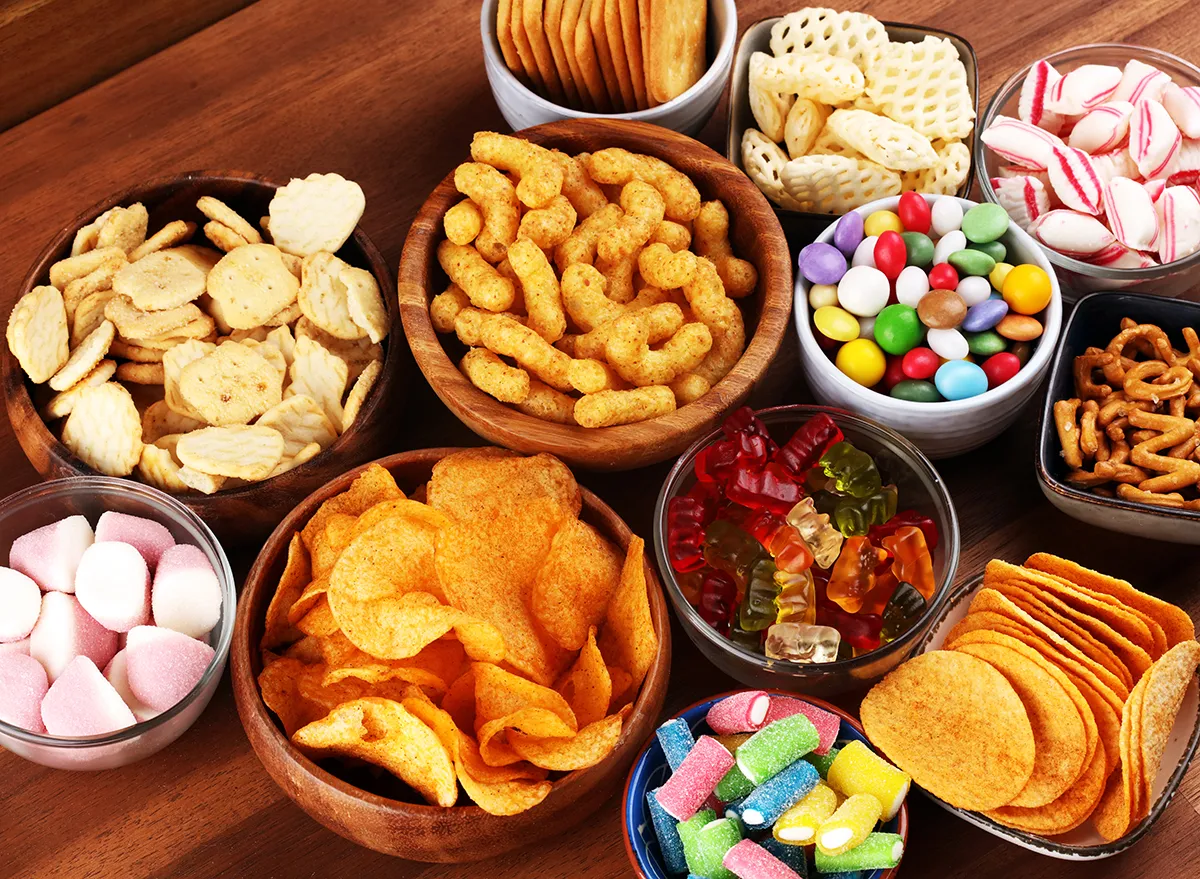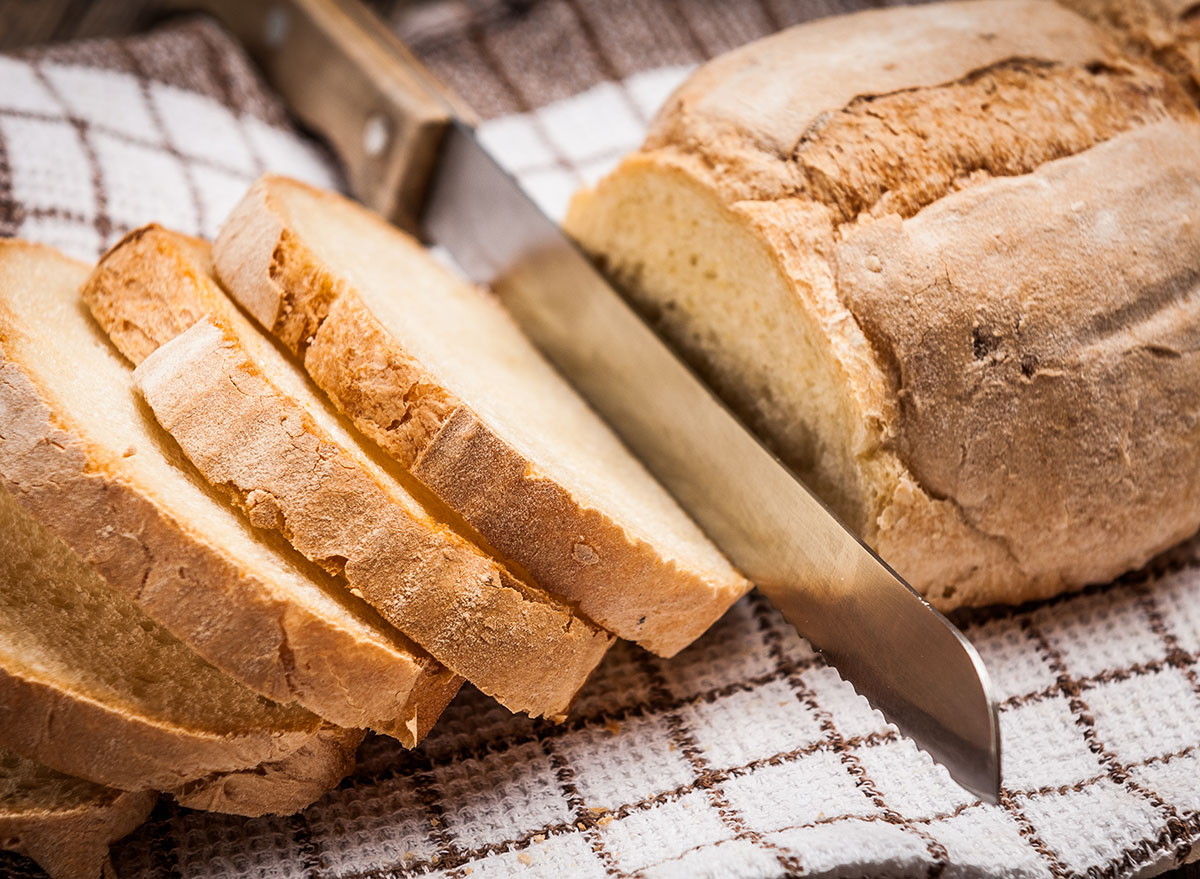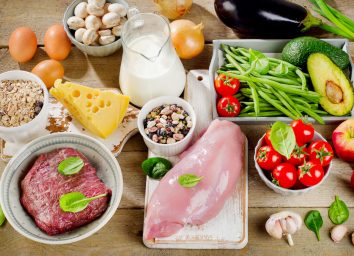Eating Habits to Avoid If You’re Over 50, Say Dietitians

If you’re over the age of 50, it’s imperative that you take good care of your health so that you continue to lead a healthy life. In addition to staying up to date on cancer screenings and vaccinations, being active, avoiding smoking, drinking alcohol in moderation, and eating nutrient-dense foods are just some other key ways you can reduce your risk of chronic disease and premature death, say experts.
What are some health problems people over 50 are prone to that may be related to diet?
“High blood pressure, high cholesterol, type 2 diabetes, diverticulosis, and osteoporosis are some of the health conditions that become more prominent after age 50,” says Melissa Rifkin, MS, RD, CDN. “Each of these conditions may have a hereditary component, however, lifestyle [habits], including dietary choices, can absolutely influence the development of disease as well.”
To Rifkin’s point about osteoporosis, Sydney Greene, MS, RDN, and member of our medical review board says, “with increased age, there is a higher risk of bone fractures and strains which is why there is an increased need for bone supporting nutrients like calcium and vitamin D.”
In addition, Greene adds that as we get older, we begin to lose the ability to absorb vitamin B12, therefore extra supplementation may be necessary. For context, the body does not create vitamin B12, so you either have to get it in the form of a supplement or through animal-based foods. Deficiency in vitamin B12 may cause fatigue, heart palpitations, loss of appetite, weight loss, and infertility, per the National Institutes of Health.
Christopher Mohr, PhD, RD, and co-owner of Mohr Results adds that adults, in general, are at risk of not consuming enough fiber which may negatively affect overall health.
“Fiber is an unsung hero in nutrition, but research shows adults eat less than 50% of the daily recommended amount,” he says. “Fortunately, this is an easy fix that doesn’t require fad dieting, giving up foods or anything of the like.”
Now, here are four eating habits that experts suggest you avoid after the age of 50. Then, don’t miss Popular Foods That Increase Visceral Fat, Says Dietitian.
Consuming too many processed foods.

Rifkin explains that many pre-packaged and processed food items contain added sugars, salt, and even trans fats, all of which can contribute to the development of several chronic diseases, including cardiovascular disease and type 2 diabetes.
“Not all convenience food items are bad, just plan to spend more time sifting through ingredient lists and avoiding those with salt, sugar, and hydrogenated oils (trans fats) in the ingredient list,” she says. “While you can maintain an overall healthy diet utilizing some convenience items and eating out occasionally, it is important to balance these items with more healthful, less processed foods that are more likely to be nutrient-dense.”
Eating late at night.

Research has shown that not getting enough quality sleep can contribute to chronic inflammation, which can then cause health complications like heart disease and diabetes. One way you can ensure you get a good night’s rest is by eating dinner at least two to three hours before going to bed so that you prevent gastrointestinal discomfort before going to bed.
“Late-night eating can lead to unwanted weight gain and gastrointestinal issues like gas, bloating, constipation or diarrhea,” says Greene. “Sleep is the body’s opportunity to repair and restore, it is not the time to be digesting food. Allowing the body time to rest is key for memory and mood support.”
Now, check out the 40 Best and Worst Foods to Eat Before Sleep so you know which foods to avoid before bedtime.
Not drinking enough water.

“As we age, our thirst mechanism becomes less effective, leading to fewer cues to drink liquid throughout the day,” says Rifkin.
She warns that people over the age of 50 could be at risk of dehydration, which can lead to a number of side effects, such as a drop in blood pressure, a rise in core body temperature, and nausea or vomiting. If left unaddressed, dehydration could lead to more severe health issues including kidney failure and seizures.
“Additionally, because we typically lose muscle with age, we have less capacity to store water, further promoting the likelihood of dehydration,” says Rifkin. “Aim to drink frequently throughout the day, whether or not you feel thirsty, and use your urine color as a gauge for hydration. Within a couple of hours of waking up, your urine should be getting lighter in color and should eventually be close to clear and stay that way throughout the majority of the day.”
Don’t miss One Major Effect of Drinking Ice Cold Water, Says Science!
Eating foods that are low in fiber.

Mohr flips the narrative a bit and recommends that you start focusing on the foods you can add to your daily meals, rather than dwelling on which ones you should remove from your diet. For example, he suggests supplementing your diet with more foods that are rich in fiber.
“Consider adding more fruits and veggies, [instead of] ultra-processed foods that currently make up about two-thirds of childrens’ diets, and likely similar proportions in adults’ diets,” he says.
Fibrous foods will not only help you stay satiated throughout the day, but Mohr says that they may also assist with weight maintenance and weight loss.
“One of my favorite ways to get fiber is by adding California figs, which are an excellent source of dietary fiber and are tasty, portable, and loaded with nutrition,” he adds. “Just three to five figs—dried or fresh—provide 5 grams of dietary fiber or 20% of the Daily Value.”
In general, Rifkin says that increasing your fiber intake can help you improve your overall health.
“A lower fiber intake can negatively influence digestion, weight, blood sugar, and cholesterol, so it is important to keep an eye on fiber intake,” she says.
In addition to fruits and veggies, she suggests adding more whole-grain products such as brown rice, oats, whole wheat bread, and legumes (think beans and lentils) to your weekly meal plan.
For more healthy tips, read these next:








